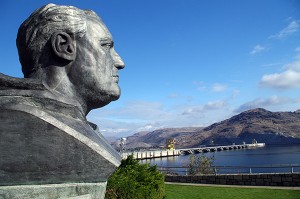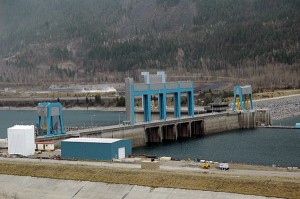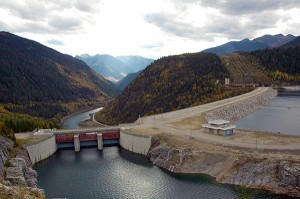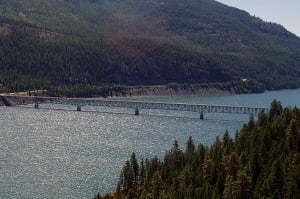Home »

B.C. announces Columbia River Treaty decision

Bill Bennett, Minister of Energy and Mines and Minister Responsible for Core Review, today announced the province’s decision to continue the Columbia River Treaty and seek improvements within its existing framework.
“We believe continuing the Columbia River Treaty while exploring how improvements could benefit both countries is the best strategy moving forward for B.C., Canada and the United States. The consultations that have included various levels of government, stakeholder groups, First Nations and the public have helped ensure the future of the treaty will be shaped by the people it impacts,” stated Bennett, Kootenay East MLA in a government press release.

Following extensive consultations during the two-year treaty review process, the decision includes 14 principles that will guide British Columbia in any discussions on the future of the treaty with Canada and the United States. One of the key principles – and the primary goal of the treaty from B.C.’s perspective – is to create and equitably share benefits from trans-boundary co-ordination with the United States, recognizing that British Columbia is impacted by treaty operations.
B.C.’s final decision concludes that both countries must recognize that for every cost associated with the treaty, there are important benefits that should be shared by both parties. Cross-border co-ordination supports the flood control and power generation needs of the United States, as well as the effective management of their environmental requirements, agriculture water supply and river navigation.

The decision also recognizes that salmon migration on the Columbia River was eliminated by the construction of the Grand Coulee Dam, 26 years prior to treaty ratification and concludes that the restoration of fish passage and habitat should be the responsibility of each country.
Other principles in the decision include considerations around flood control, hydropower generation, ecosystems and climate change, while maintaining the flexibility to adapt to evolving economic, social and environmental circumstances in each country.

B.C. has engaged in discussions with Canada on how both governments will work together in anticipation of any future potential negotiations with the United States.
The Columbia River Treaty Review included economic, environmental, social, hydrological and legal analyses as well as extensive public and First Nations consultation leading to a decision on whether to continue, amend or terminate the Columbia River Treaty with the United States.

“Local governments have successfully collaborated with the province to ensure the opinions and voices of basin residents are heard in decisions related to the future of the Columbia River Treaty in an extensive review process over the last two years. We congratulate the Province on reaching a decision regarding the future of the CRT and look forward to reviewing the decision as this is an essential next step in seeking improvements to the treaty,” said Debra Kozak, chair of the Columbia River Treaty Local Governments’ Committee –

The U.S. (Bonneville Power Administration and the U.S. Army Corps of Engineers) made its final recommendations to the U.S. federal government in December, which are currently being reviewed by the U.S. State Department. The United States will co-ordinate a federal interagency review under the general direction of the National Security Council on behalf of the President of the United States.
 The Columbia River Treaty is known throughout the world as one of the most successful models of a trans-boundary water management. This internationally respected water management agreement was ratified in 1964 and has spurred ongoing discussions around the need for cross-border collaboration to address flooding concerns and growing demands for energy.
The Columbia River Treaty is known throughout the world as one of the most successful models of a trans-boundary water management. This internationally respected water management agreement was ratified in 1964 and has spurred ongoing discussions around the need for cross-border collaboration to address flooding concerns and growing demands for energy.
Although the treaty has no specified end date, either Canada or the U.S. can unilaterally terminate most of the agreement provisions as early as Sept. 16, 2024, provided that at least 10 years notice is given (on or before Sept. 16, 2014). Whether the treaty is terminated or not, in 2024 the flood control regime changes in ways that will create significant impacts to U.S. interests. Governments on both sides of the border have undertaken a review of the treaty. The Ministry of Energy and Mines is leading the review on behalf of the province and is co-ordinating this review with the federal government.
To view B.C.’s final decision visit:
http://blog.gov.bc.ca/columbiarivertreaty/files/2012/03/BC_Decision_on_Columbia_River_Treaty.pdf
Learn more about the Columbia River Treaty from Columbia Basin Trust.
e-KNOW







